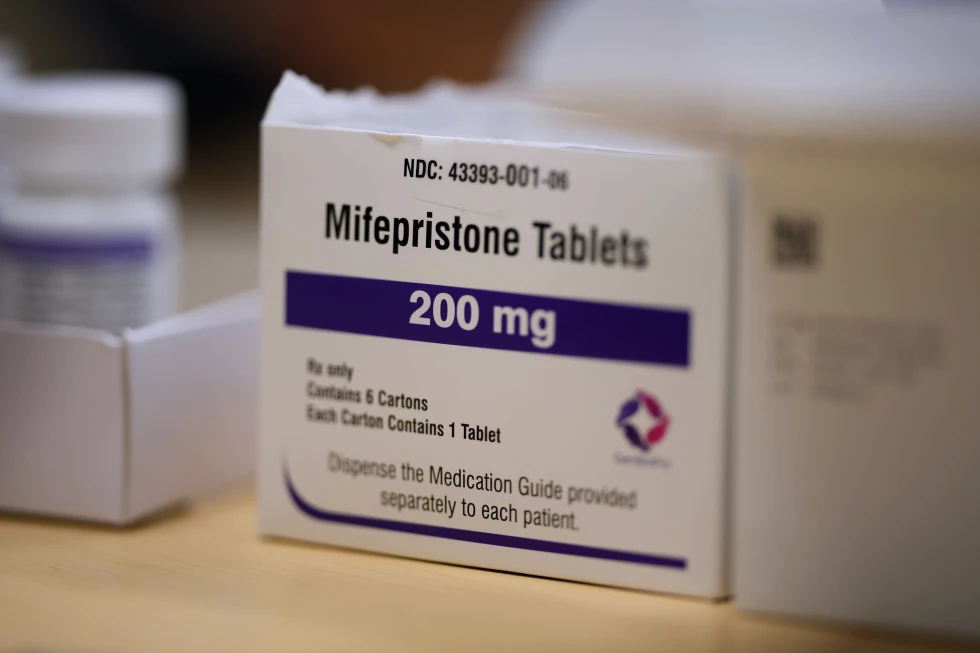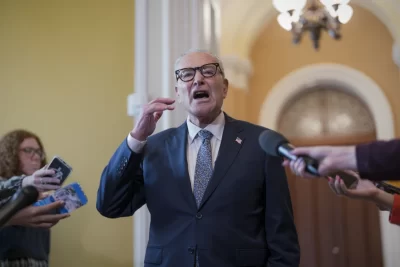
WASHINGTON— Anti-abortion advocates say there is still work to be done to further restrict access to abortion when Republican Donald Trump returns to the White House next year.
They point to the federal guidance that the administration of Democratic President Joe Biden released around emergency abortions, requiring that hospitals provide them for women whose health or life is at risk, and its easing of prescribing restrictions for abortion pills that have allowed women to order the medication online with the click of a button.
“Now the work begins to dismantle the pro-abortion policies of the Biden-Harris administration,” the Susan B. Anthony List, the powerful anti-abortion lobby, said in a statement Wednesday. “President Trump’s first-term pro-life accomplishments are the baseline for his second term.”
The group declined to release details about what, specifically, they will seek to undo. But abortion rights advocates are bracing for further abortion restrictions once Trump takes office. And some women are, too, with online abortion pill orders spiking in the days after Election Day. Trump has said abortion is an issue for the states, not the federal government. Yet, during the campaign, he pointedly noted that he appointed justices to the Supreme Court who were in the majority when striking down the national right to abortion. And there are things his administration can do, from picking judges to issuing regulations, to further an anti-abortion agenda.
Trump unlikely to require emergency abortions from hospitals
The Trump administration is expected to pull back Biden’s controversial directive that requires emergency rooms to provide abortions when necessary to stabilize a woman’s health or life. The Biden administration had argued that the decades-old federal law, which requires hospitals to provide stabilizing treatment for patients in exchange for Medicare funding, also applies in cases where an abortion might be needed.
Reports of women being sent home or left untreated by hospitals in dangerous scenarios have proliferated across the United States since the Supreme Court overturned the national right to an abortion in 2022. In some cases, hospitals said state abortion bans had stopped them from terminating a pregnancy.
“We’re seeing the lives of pregnant people be put in jeopardy,” Fatima Goss Graves, president and CEO of the National Women’s Law Center, said Wednesday. “We’re seeing women who have become infertile, who have been subject to sepsis and we’re now hearing reports with death.”
Even if a Trump administration abandons the guidance of the law, Goss Graves said advocacy groups like hers will continue a legal fight for the Biden administration’s interpretation of the law.
Some doctors and hospitals also have said the federal guidance offered a protection for them to perform emergency abortions in states like Idaho and Texas, where threat of prosecution for performing an abortion hangs over their decision-making.
Trump has said he supports exceptions for rape and incest cases, as well as when a woman’s life is at risk. But he has not gone as far as saying he supports exemptions when a woman’s health is on the line.
Abortions might be necessary to prevent organ loss, significant hemorrhage or dangerous infections for pregnant women in rare but serious scenarios. In cases like ectopic pregnancy, premature rupture of membranes and placental abruptions, a fetus might still be alive but continuing the pregnancy can be detrimental. Doctors have argued that the legal gray area has put them in a bind.
In Idaho, for example, one hospital resorted to airlifting women out of the state after a strict abortion ban, which only allowed for abortions to prevent a woman’s death, was enacted.
The Biden administration sued Idaho, arguing its state law conflicted with federal law requiring hospitals to provide stabilizing treatment, which might include abortions, for patients. The state amended its law to allow abortions for ectopic pregnancies, but other dangerous scenarios still remain unaccounted for. The Supreme Court declined to address the issue earlier this year, issuing a limited order that cleared the way for hospitals to provide emergency abortions while the case worked its way through lower courts.






